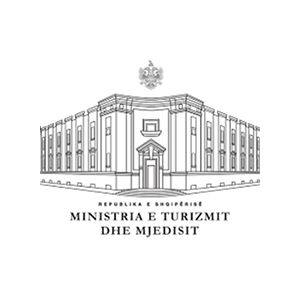Working Subgroup for Waste management
The sub-chapter of Waste is composed of 13 pieces of legislation, comprising 10 directives and 3 regulations. The main directive, which frames the whole subchapter on waste is Directive 2008/98/EC ‘on Waste’. It establishes a legal framework for managing waste in the EU to protect the environment and human health by emphasizing the importance of proper waste management, introducing a waste hierarchy, recovery and recycling techniques to reduce pressure on resources and improve their use, without putting any risk to water, air, soil, plants or animals, without causing a nuisance through noise or smells, or harming the countryside or places of special interest. Several principles on waste management, as ‘polluter pays principle’, the ‘extended producer responsibility’, and the end-of-waste status and distinction between waste and by-products, followed by sets of targets for recycling and recovery for household waste and C&D waste and special conditions to hazardous waste, waste oils and bio-waste management are some of the main tools introduced in the Waste Directive.
Following the main requirements of the Waste Framework Directives, other directives and regulations on specific waste streams introduce targets and tools to be followed by MS toward the implementation of an integrated waste management system:
- Directive 94/62/EC ‘on packaging and packaging waste’ establishes targets for recovery and recycling of packaging waste and promotes economic instruments to achieve these targets, requires establishing systems for the return/collection of such waste, requirements for the packaging prior being placed on the market, a data base on packaging and waste from packaging, and a mechanism to provide information for users;
- Directive 2006/66/EC ‘on batteries and accumulators and waste batteries and accumulators’ and Directive 2000/53/EC ‘on end-of-life vehicles’ specifically promote protection, preservation and improvement of environmental quality through minimizing negative impact of batteries and accumulators, their waste and end-of life- vehicles, through prohibiting the placing on the market of portable batteries and accumulators, whether incorporated into appliances or not that contain cadmium (more than 0.002% of cadmium by weight) and mercury (more than 0.0005% of mercury by weight). Both directives set reuse, recovery and recycling targets and monitoring schemes of such targets, measures to encourage reuse/recycling;
- Directive 2012/19/EU on WEEE and Directive 2011/65/EU ‘on the restriction of the use of certain hazardous substances in electrical and electronic equipment’ establish a system for the separate collection of WEEE and restriction of the use of certain hazardous substances of EEE, lead, mercury, cadmium and chrome VI by setting targets for collection and recovery, a permitting system for treatment of WEEE and financing system for management of WEEE;
- Directive 2006/21/EC ‘on the management of waste from extractive industries’ provides measures, procedures and guidance to prevent or reduce, as far as possible, any adverse effects on the environment, and any potential risks to human health, as a result of the management of waste from the extractive industries;
- Regulation (EU) no 1257/2013 ‘on ship recycling’ aim to prevent, reduce, minimize and, to the extent practicable, eliminate accidents, injuries and other adverse effects on human health and the environment caused by ship recycling;
- Directive 86/278/EEC ‘on protection of environment when sewage sludge is used in agriculture’ establish certain initial measures in connection with soil protection; Regulate the use of sewage sludge in agriculture in such a way as to prevent harmful effects on soil, vegetation, animals and man, while encouraging its correct use;
- Directive 1999/31/EC ‘on the landfill’ of waste and Directive 2011/97/EU establish criteria and procedures for the acceptance of waste at landfills, provide measures, procedures and guidance to prevent or reduce as far as possible negative effects on the environment from landfilling of waste, during the whole life-cycle of the landfill;
- Regulation (EC) no. 1013/2006 on shipments of waste establishes procedures and control regimes for the shipment of waste, depending on the origin, destination and route of the shipment, the type of waste shipped and the type of treatment to be applied to the waste at its destination;
Specific Directive 96/59/EC ‘on the disposal of polychlorinated biphenyls and polychlorinated terphenyls (PCB/PCT)’ aims to approximate the laws of the MS on the controlled disposal of PCBs, the decontamination or disposal of equipment containing PCBs and/or the disposal of used PCBs in order to eliminate them completely on the basis of the provisions of this Directive. Meanwhile Regulation (EC) no 850/2004 ‘on persistent organic pollutants’ provides precautionary principles to protect human health and the environment from persistent organic pollutants by prohibiting, phasing out as soon as possible, or restricting the production, placing on the market and use of substances.




